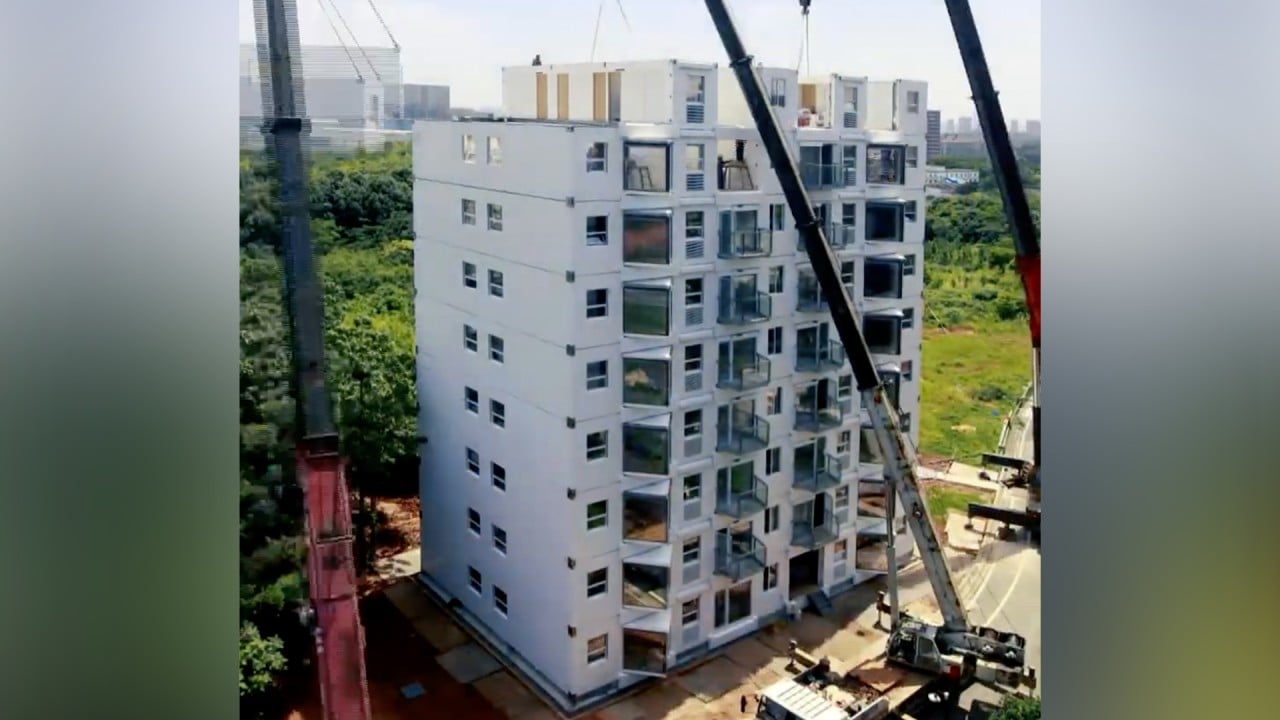
Rental market boom is a silver lining for China’s property sector
- A liquidity crisis has called into question the way Chinese developers financed and built homes, and shattered confidence among homebuyers and investors
- With Xi Jinping prioritising affordable rental housing amid a ‘common prosperity’ push, however, investors could do worse than align themselves accordingly
The rapidly retreating liquidity tide has revealed that the swimwear of even some of the higher-quality builders was not sturdy enough to cope with the sudden closure of global capital markets to Chinese developers. Despite a pledge by the government last month to ease pressure on the sector, persistent doubts about the scope and efficacy of a reversal of policy are prolonging the crisis.
Yet, it is not all doom and gloom in China’s housing market. The slump in residential sales has accentuated the resilience and appeal of rental housing. With more than 200 million people renting homes in the world’s second-largest economy, the sector is estimated to be worth 1 trillion yuan (US$157 billion), according to data from JLL, and is starting to become more institutionalised.
In a sign of the extent to which policy towards the rental and sales markets has diverged, Beijing has introduced a range of measures to promote the development of rental housing by boosting the supply of land, providing tax incentives and strengthening regulation.
Charles Ma, managing director of Greystar China in Shanghai, said that, at a time when confidence in the residential sales market has eroded, the government is “more willing to consider rental housing”.
Moreover, while home values have fallen, price-to-income ratios in Beijing, Shanghai and Shenzhen remain much higher than in other major cities around the world, increasing the appeal of renting.
From an investment perspective, government support for rental housing adds to the attraction of an asset class which, while still in its infancy in China, is benefiting from a global reallocation of capital towards real estate assets with defensive attributes in a post-pandemic world.
In the United States, the most mature and liquid rental housing market, multifamily properties – apartments that are institutionally owned and rented out to a variety of tenants – accounted for 42 per cent of commercial real estate deals in the first three quarters of last year, compared with 19 per cent for offices, data from RCA shows.
To be sure, institutional investors in China’s rental housing sector have their work cut out. With the government focused on supporting affordable rental accommodation, the market-based leasing market faces bigger challenges.
One is the difficulty in acquiring land zoned for rental housing since sites are granted almost exclusively to state-owned enterprises and local developers. Investors must rely on conversion opportunities, making it hard to build scale quickly.
Another key constraint is the lack of liquidity, which has a deleterious effect on pricing and transparency in the sector, and reduces the range of exit routes for investments.
Although, for the time being, China’s Reits exclude traditional types of commercial real estate, Ma said that the government treats rental housing as part of the infrastructure assets it allows Reits to finance, making it more likely that market-based rental housing will eventually be included in the Reit programme.
China’s residential sales market is experiencing a severe crisis, mainly as a result of the government’s austere policies. The prospects for the rented sector, on the other hand, remain bright. Being aligned with Beijing’s policy priorities has never mattered more.
Nicholas Spiro is a partner at Lauressa Advisory


